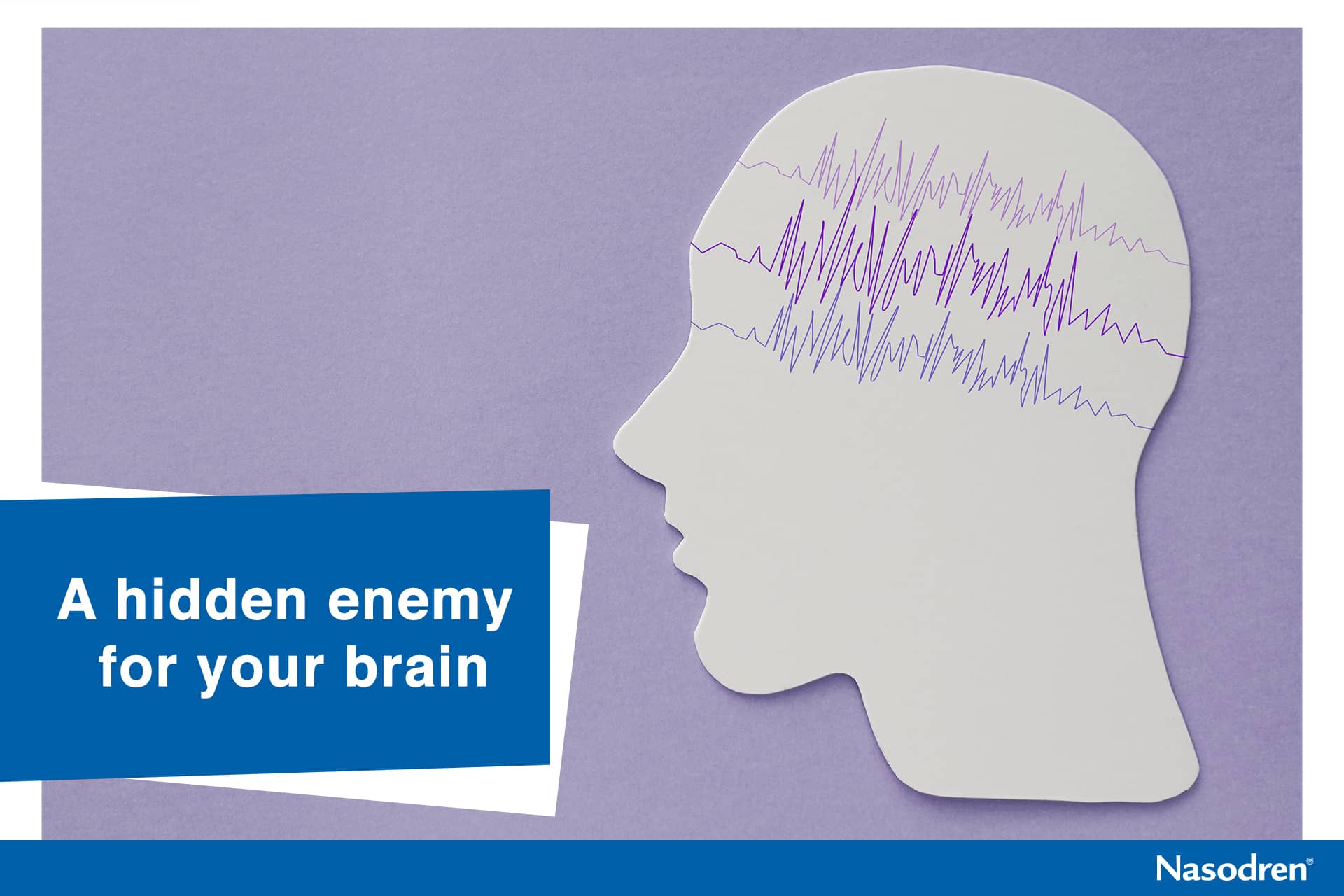“My own brain is to me the most unaccountable of machinery -always buzzing, humming, soaring, roaring, diving, and then buried in mud. And why? What’s this passion for?”. The brilliant English writer Virginia Woolf wrote these words to describe the fascinating ‘power’ of the human brain, the most complex gear of our bodies. We all know that keeping a healthy brain is key for anybody who wants to live his or her life to the fullest, and that’s why we need to protect it from any potential hazards.
When thinking about sinusitis, people tend to restrict themselves to the stereotypes based on common symptoms: nasal congestion and discharge, facial pain, headache and loss of smell, among others. However, when a sinus infection lingers, other problems and even serious complications may arise. Although this isn’t a daily occurrence, there are cases of frontal and ethmoid sinusitis originated from bacteria that can spread to the brain and wreck havoc in that area. And, yes, the resulting effects can even be life-threatening when not taken care of properly.
There are several infrequent but serious brain conditions to watch for as a result of a sinus infection:
Cerebral abscess
A cerebral abscess occurs when immune cells, along with pus and dead or live bacteria or fungi, accumulate in a region of the brain, thereby creating a swollen abscess or mass. This can cause brain damage, seizure, visual changes, vomits and even lead to death. But how is it possible that sinusitis is somehow connected to such a scary condition? Well, just keep in mind that the frontal sinus is very close to the cranium and conveniently well-communicated to the brain through a crowded venous system, which makes it possible for bacteria to ‘navigate’ and reach the brain.
That said, you have to know that intracraneal abscesses are also linked to dental infections, otitis media, mastoiditis, heart disease and skull trauma.
Meningitis
You may already know what meningitis is, but it’s always good to have a quick reminder so that you aren’t taken aback. Meningitis is the term used to describe the infection of the membranes that line the brain and the spinal cord, and it’s either caused by bacteria, viruses or fungi. A chronic sinusitis that isn’t well treated can be the catalyst for meningitis, which stands out for a wide variety of symptoms, including fever, chills, nausea and vomiting, sensitivity to light, severe headache and stiff neck.
When caused by bacteria, meningitis is considered a medical emergency and requires immediate treatment. Otherwise, it can provoke either lasting or permanent brain damage and even death within just a few hours after it strikes.
Briefly, any sinus infection that becomes chronic can’t be ignored under any circumstances. Misdiagnosis happen more often than is desirable, so our advice is not to take any symptoms for granted, especially by relating them to a lasting common cold, which leads to a ‘classic’ confusion. Being cautious can not only speed up your recovery process, but also prevent further complications like those affecting your brain health.
Have you ever had frontal or ethmoid sinus problems? Did they worsen? How did you manage them?








